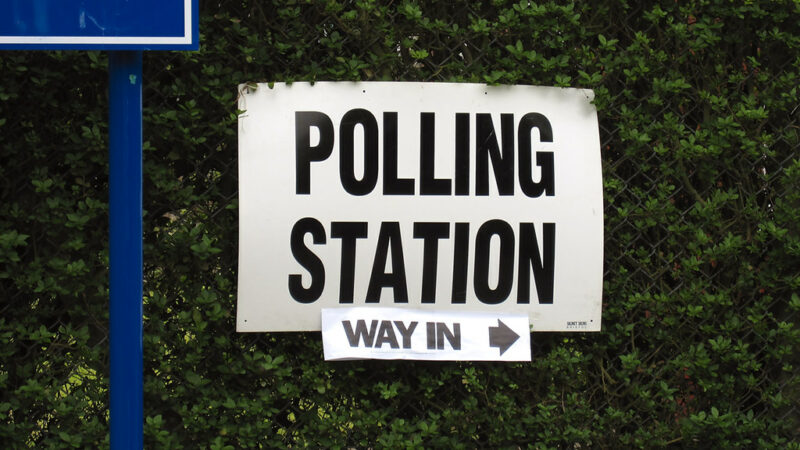The majority of the poor and the disabled rarely vote for the ruling Conservative party. So the Bill makes it difficult for them to vote

Prem Sikka is an Emeritus Professor of Accounting at the University of Essex and the University of Sheffield, a Labour member of the House of Lords, and Contributing Editor at Left Foot Forward.
Extreme right-wing governments seem to want to remain in office forever. One way of doing that is to change the rules of elections, disenfranchise people, destroy independent organisations, weaken civil society and starve opponents of resources. This is being done through the Elections Bill going through the UK parliament.
The Bill requires all voters to have a photo ID. The government claims that this is to tackle voting fraud. Where is the evidence? In 2019, the UK had a general election, European Parliamentary election, local council elections, Mayoral and Police and Crime Commissioner Elections. There were 47 million Parliamentary and 49 million local government electoral registrations. Only four people were convicted of voting fraud and another two were cautioned.
The real reason is to gain electoral advantage. The majority of the poor and the disabled rarely vote for the ruling Conservative party. So the Bill makes it difficult for them to vote. The less well-off tend not to have passports or driving licences. They will need to have a specific photo ID to cast votes. The government is offering some financial help, but many are unwilling or unable to go along with compulsory photo ID. An estimated 1.7 million low-income voters are likely to be disenfranchised. This is in addition to 9.4 million eligible people, mostly the less well-off who are not on the electoral register.
Voting and political donations are overseen by the Electoral Commission, an independent statutory body. It is critical of the introduction of photo ID and has fined the Conservative Party for failing to accurately report political donations. The Bill makes the Commission subservient to the government and its role will be to enable the government to meet its priorities.
Note that it refers to “the government” and not “parliament”. The Ministers can make any rule at any time, even retrospectively, without parliamentary approval. The Ministers will have powers to ban organisations or campaigning styles. Such powers will inevitable be used to disadvantage the government’s opponents.
In addition to Belarus, the UK is the only other European country to use the First-Past-The-Post (FPTP) voting system for its general elections. In a multiparty contest, a party receiving around 40% of the vote ends with a huge majority in the House of Commons.
Discontent with the FPTP has resulted in the use of the Supplementary Vote system for the Mayoral and Police Commissioner elections. Conservative candidates have rarely been declared winners. So the government now claims that people don’t understand the alternatives and the FPTP will be the only system used for general, local and other elections. Proportional representation will continue to be used for parliamentary assemblies in Scotland, Wales and Northern Ireland.
Currently, British citizens are not permitted to vote in General Elections if they have lived abroad for more than 15 years. The Bill scraps that rule . Around three million people would become eligible to vote. The rule also prevents rich tax exiles from funding political parties because the Political Parties, Elections and Referendums Act 2000 requires that only individuals on the electoral register or entities (e.g. companies) registered in the UK can make a political donation. The rich have always been able to find creative ways of routing donations through a series of offshore and UK companies. None of this is checked by the Bill.
The scrapping of the 15 year rule would make it easier for billionaires holed-up in tax havens to fund the Conservative Party as their names would appear on the electoral register. Rich individuals would wield considerable influence even though they have little contact with daily life in the UK. 48 of the 151 richest people already fund the Conservative Party.
Marginalised people look to civil society organisations and trade unions to campaign for reforms and challenge the established political order. All that will be severely curtailed as the government will impose restrictions on campaigns by “third parties”.
The Minister can remove or define permitted participants in election campaigning, and restrict categories of organisation from spending more than £700 on campaigning in the 12 months leading up to a general election. An election can be called at any time as the Prime Minister has taken the power to dissolve parliament without a vote in the House of Commons.
The Bill attacks the Labour Party’s relationship with trade unions. It curtails the ability of trade unions to campaign in their own right through new rules on ‘joint campaigning’ with political parties. Currently, trade unions expenditure on political campaigns is counted against their own statutory spending limits. The Bill introduces double/triple counting. The same expenditure will count for the political party spending limit too and cut millions from Labour Party’s spending. The Ministers will define whether expenditure can be classified as joint campaigning.
The Elections Bill is another step towards fascism. It makes massive constitutional changes without adequate prior consultation and perfunctory scrutiny in the House of Commons. It disenfranchises the less well-off, rigs elections, destroys independent watchdogs, and forces civil society organisations to disengage from political activism. It opens the floodgates for funding for the Conservative Party but starves others.
Left Foot Forward doesn't have the backing of big business or billionaires. We rely on the kind and generous support of ordinary people like you.
You can support hard-hitting journalism that holds the right to account, provides a forum for debate among progressives, and covers the stories the rest of the media ignore. Donate today.



